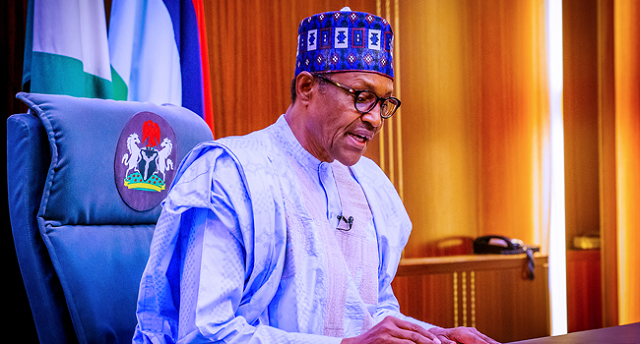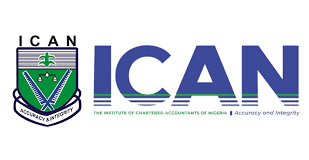President Muhammadu Buhari on Tuesday inaugurated the National Autogas Rollout Initiative aimed at lessening the severity of deregulation of the downstream sector of the country’s energy market.
The initiative tagged ‘National Gas Expansion Programme and National Autogas Rollout Initiative,’ was unveiled in a virtual ceremony and would see petrol-powered vehicles converted to consume gas.
Buhari expressed appreciation to Nigerians and organized labour for exercising restraint, understanding, and patience despite the tough economic challenges.
READ ALSO: Latest ASUU News Roundup For Today December 2nd, 2020
The president directed the Minister of State for Petroleum Resources, Mr. Timipre Sylva to deliver mass transit vehicles to organized labour in fulfillment of the federal government’s promise to continuously provide assistance to meet the transportation needs of Nigerians.
The Group Managing Director of the Nigeria National Petroleum Corporation (NNPC), Malam Mele Kyari, briefed the participants that over N3 trillion was expended on subsidizing petrol between 2016 and 2019.
Buhari urged Nigerians to adopt the use of gas, stating that it is an efficient alternative to petroleum. He said Nigeria is currently underutilizing its gas resources despite its immense deposit in the country.
He said: “It is no longer news that the vast natural gas resources, which Nigeria is endowed with, have hitherto been used sub-optimally as a result of a dearth of gas processing facilities and infrastructural connectivity for effective and optimal domestic utilisation.”
According to him, the expansion of Nigeria’s level of domestic natural gas has become imperative in view of the country’s proven reserve of about 203 trillion cubic feet (TCF) and an additional 600 TCF, which earned the country the ninth place in the world ranking.
Buhari stated that the deregulation of the downstream petroleum sector had exposed many to price volatilities in the global market.
He canvassed a shift to a more affordable alternative to energy, especially with Nigeria’s heavy reserve, saying the current economic crisis makes reverting to gas utilisation timely.
“Therefore, the rollout of the National Gas Expansion Programme, Autogas Initiative, is coming at the right time, especially in light of global crude oil market fluctuations coupled with the full deregulation of the local PMS market.
“These developments have made it imperative to focus on gas as an alternative fuel to move Nigeria from the conventional dependence on white products for autos and prime-movers of industrial applications, to cleaner, more available, accessible and affordable energy source.
“The outcome will not only cushion the effect of the downstream deregulation that this government has to painfully implement, but also create new markets and enormous job opportunities for our people,” he said.
Buhari also said the initiative would result in increased domestic gas utilisation and enrichment of the trajectory of national economic growth and development.
He added: “I therefore encourage everyone to embrace gas in form of LPG, CNG and LNG as an alternative fuel for autos and other prime-movers.
“The Minister of State Petroleum Resources is hereby directed to commence the process of hand over of mass transit buses to organised labour as part of our government’s pledge to continue providing the support that will ease the transportation challenges Nigerians are facing at this time.’’
The statement also quoted Sylva as saying that the petroleum ministry is focusing on skill development, technology and manpower as well as growth in the utilisation of LPG, CNG and LNG.
He said the national gas expansion programme, initiated this year to boost the utilisation of gas in the short and medium-term, “is expected to create two million jobs per annum, promote skills acquisition and enhance technology transfer in addition to growing the nation’s gross domestic product (GDP).”
Kyari told the meeting that between 2016 and 2019, the federal government spent over N3 trillion to subsidise the pump price of petroleum products, particularly petrol.
He added that the subsidy regime was not beneficial to the masses, who he said the president is passionate about.
He said the economic effects of COVID-19 had made the sustenance of subsidy regime impossible.













